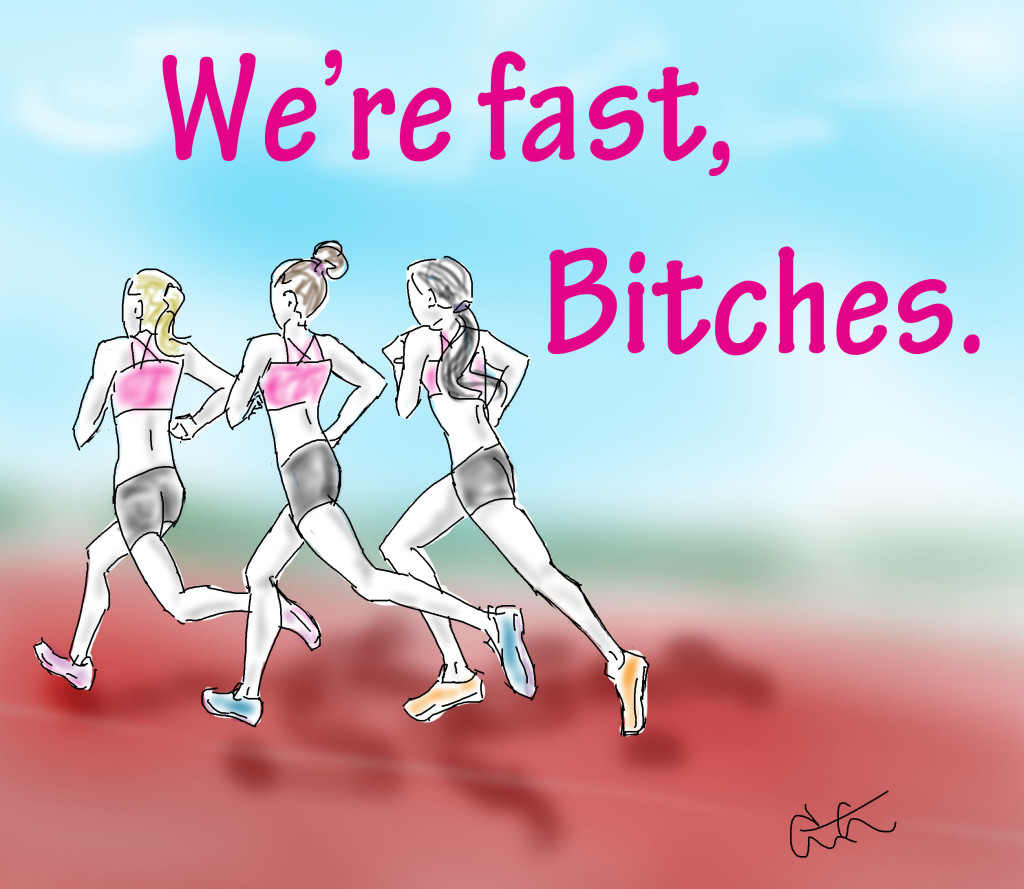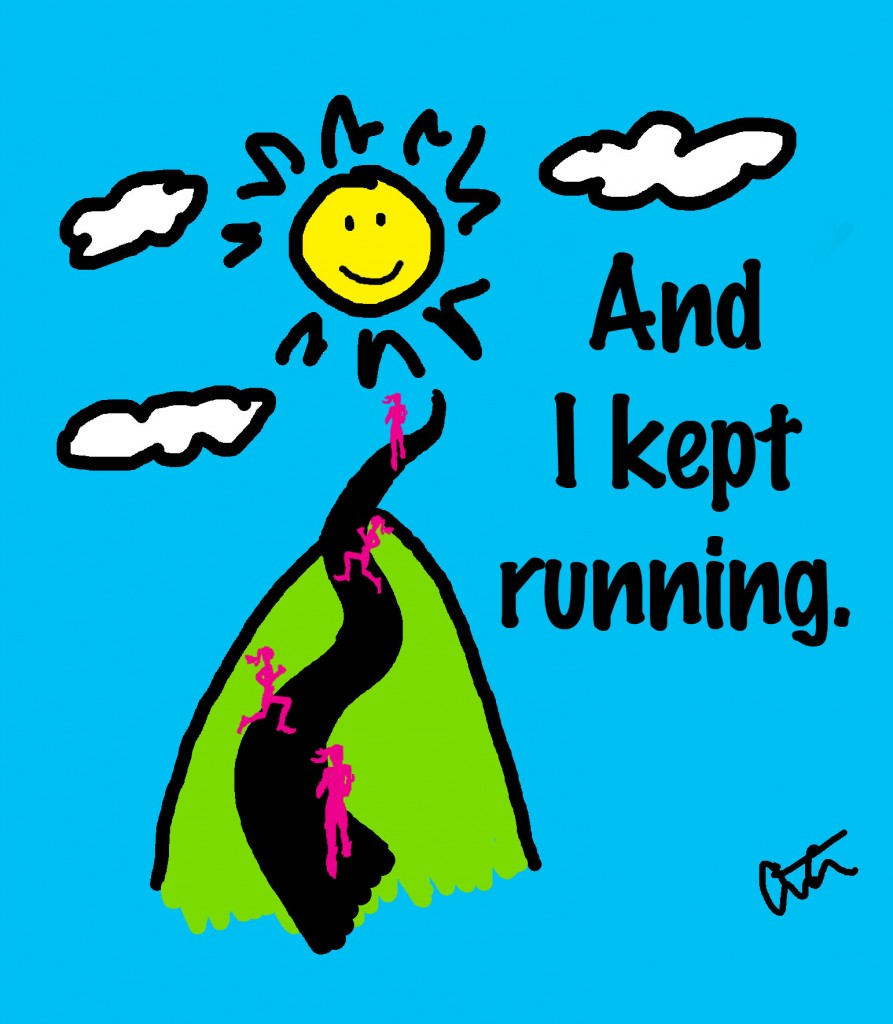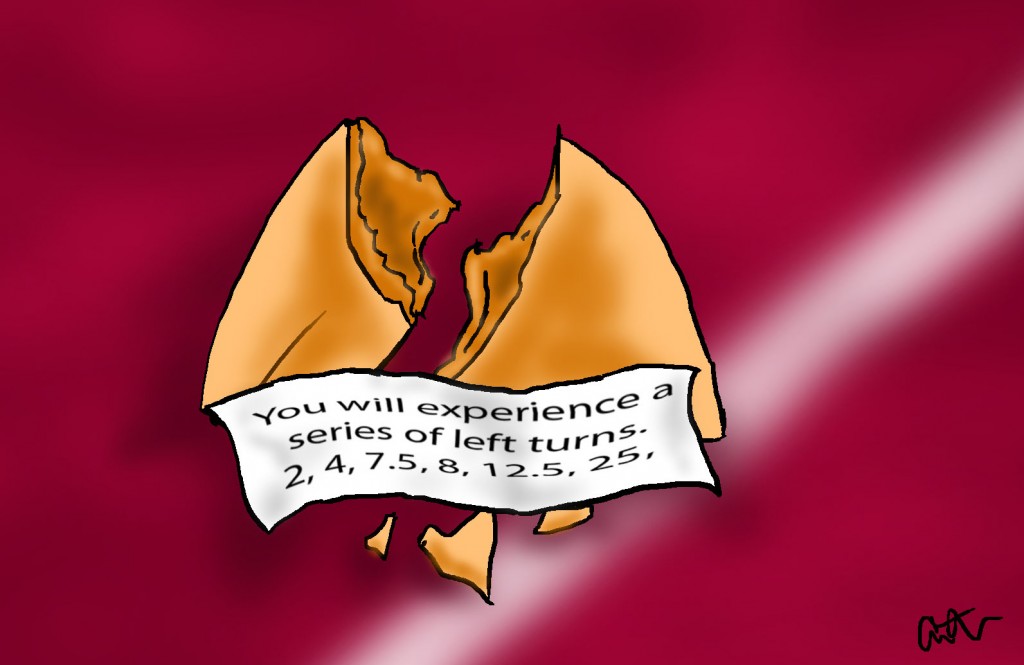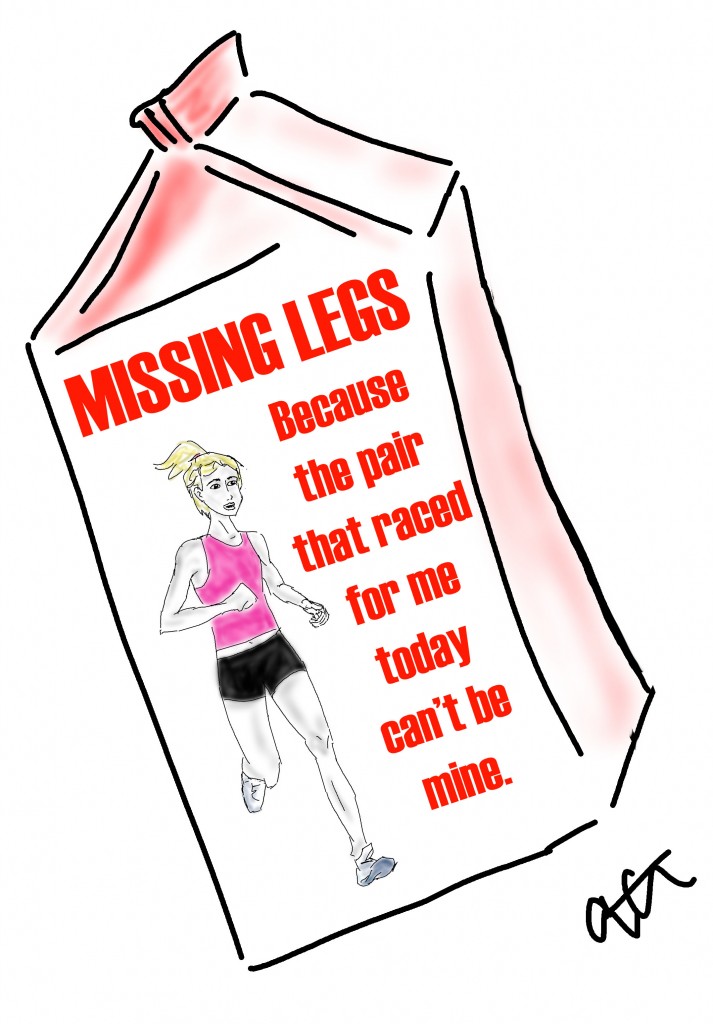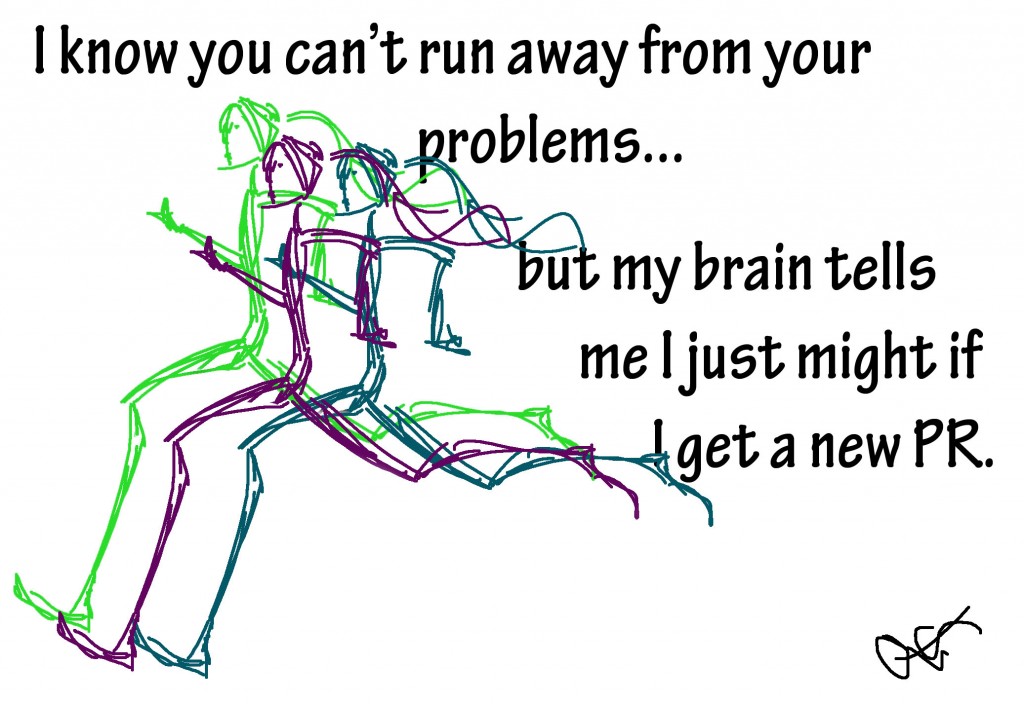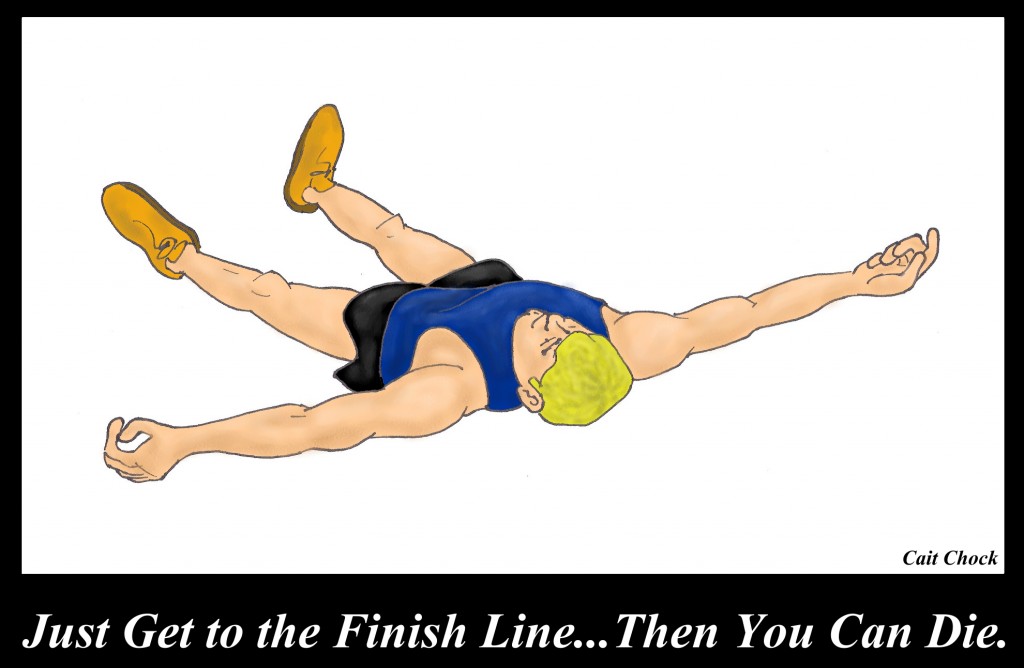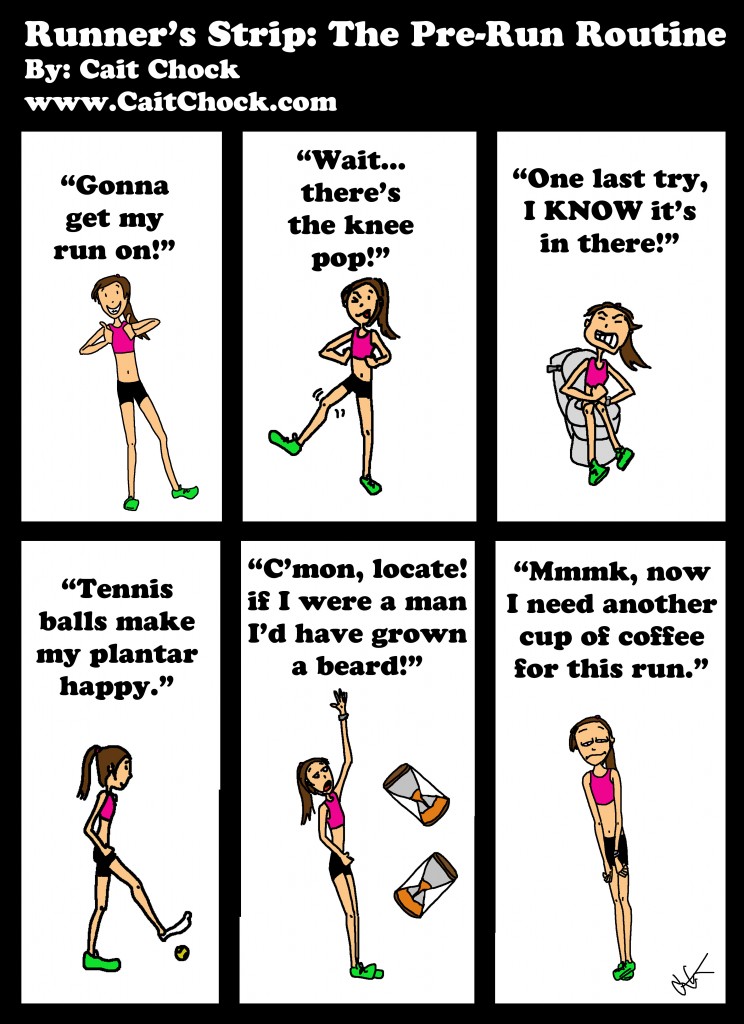This runner has had burritos on the brain. That being said, tucking into a 5lb burrito bomb and taking off on a 5 mile tempo isn’t such a hot idea. Actually, going for any run after that may be iffy…
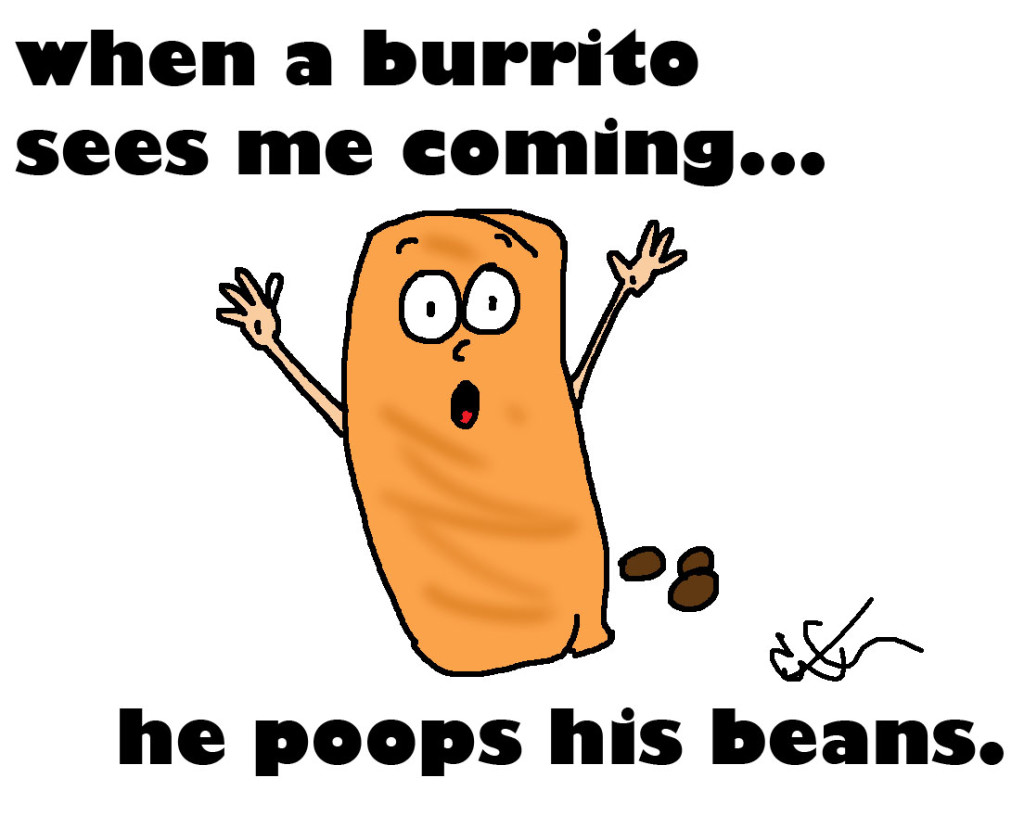
I’m more than open in sharing my runner stories of GI distress, gut woes, and tales from the poopy trails. HERE is a previous post and with lots of tips to tackling your own GI issues. Though I happened upon an interesting interview with Dr. Barry Schlansky, specializing in gastroenterology and hepatology, over at FloTrack.
Go read the article yourself, but here are some settling, and not-so-settling things I took away from it:
* Blood Flow Bottom Line: The root of many GI issues is how the body is delegating blood flow through the body during and after exercise. When we’re running our butts off the body’s first priority is to send blood to the muscles in order to fuel our exertion. The intestines are the low-men on the totem pole here and when they are deprived of adequate blood flow there is a bit of damage being caused. Without the adequate oxygen from the blood flow the intestines start to stage their revolt.
* Post-Run Gut Revolt: Sometimes the worst pains and episodes happen AFTER a hard or long run…talk about being chained to the lou for the rest of the day. I’m sure many runners can relate to this feeling, and Dr. Schlansky states it as much, “Right, the longer or more intense the workout is, it will increase the symptoms during and after the workout.” In short it comes back to the intestines not having adequate oxygen/blood-flow WHILE we are working out; then, once we stop working out and blood begins to get shunted back to these organs it’s almost like opening a flood-gate and the intestines aren’t prepared to handle such a quick supply of blood/oxygen. So, they then stage their revolt. “The influx of oxygen to the vulnerable ischemic (damaged from earlier lack of blood supply) tissues can result in a chemical reaction called “oxidation,” which is thought to be the basis for additional injury to tissues after exercise has stopped.”
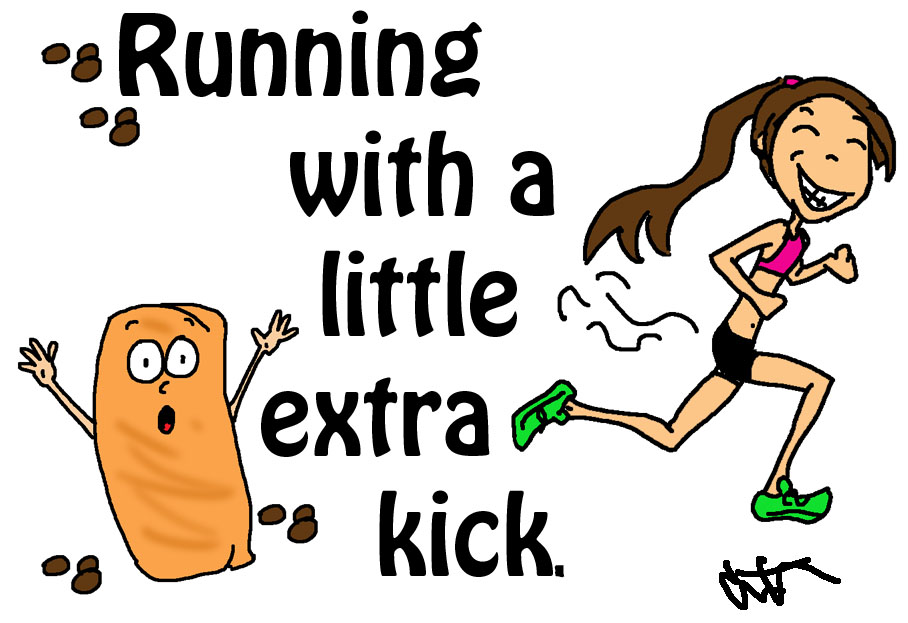
* Endurance and Effort: Not surprising is that over 80% of elite marathon runners complain of some GI issues; this is both the upward and the downward. Unfortunately Dr. Schlansky is blunt, “I wish I could tell you “why,” but to be honest, at this point the associations are unknown.” (unsettling) Most likely the fact that running puts our guts through quite a POUNDING has a strong link, and “Additionally, researchers have hypothesized that friction between the organs and the lining of the abdominal wall with pounding exercise may cause irritation that causes symptoms.” As for effort, I’m no doctor but I’m willing to go out on a limb and say that the fact that the harder we run, there’s got to be an extra level of ‘pounding/driving’ force shaking that sh*t up. 😉
* Females: This really stinks, Runnerchicks, but woman are more apt to GI issues than the runnerdudes. He’s not able to give us a reason, but it’s probably due to differing hormones.
* Eating and Food: Burrito bombs aren’t recommended (duh) and it’s wise to seek out ‘blander’ foods, not too high in fat, not too spicy, not too beany or cheesy, nix the dairy, and so forth. Learn your ‘tummy trigger foods’ and avoid them. Also, timing your last meal is just as important so you can revisit my post on that.
* Iron and Anemia: Any extra blood loss from diarrhea, especially if it’s on a continual basis, can lead to iron deficiency/anemia. “Yes, because it is also possible to lose small amounts of blood in the gastrointestinal tract that is invisible to the naked eye but can result in iron deficiency,” says Dr. Schlansky. If you’re having a lot of GI issues it’s important to keep tabs on your iron levels, I know that runners who later find out they have celiac disease and are gluten intolerant, that because of all of their GI problems they are then anemic.

* Dehydration: Any kind of increased vomiting or diarrhea leads to fluid loss and dehydration, that’s why it’s so important to rehydrate yourself. (The issue there is if you’re running a marathon but aren’t able to take in any more fluids or gels…sadly, you’re kind of screwed at that point, that’s why it’s important to test out and try a bunch of different foods/supplements BEFORE your race to find one that works.) So with any kind of GI issue run make sure you’re extra mindful to replenish those fluid and electrolyte stores.
I’m a sucker for a good poop read, so you should read the full interview done by Danny Mackey. Who is actually a super cool guy in addition to being smart. He’s also married to one smoking fast runnerchick, Katie Mackey, so he gets extra cool points. 😉
1) What was your last GI disaster run? Can you link it back to one food in particular?
2) Do you have more GI issues going the up route or the down?
Down. I’ve never thrown-up actually during or after a run.
3) What foods have you learned are GI suicide for you? What is a ‘winning’ combo that’s worked?


